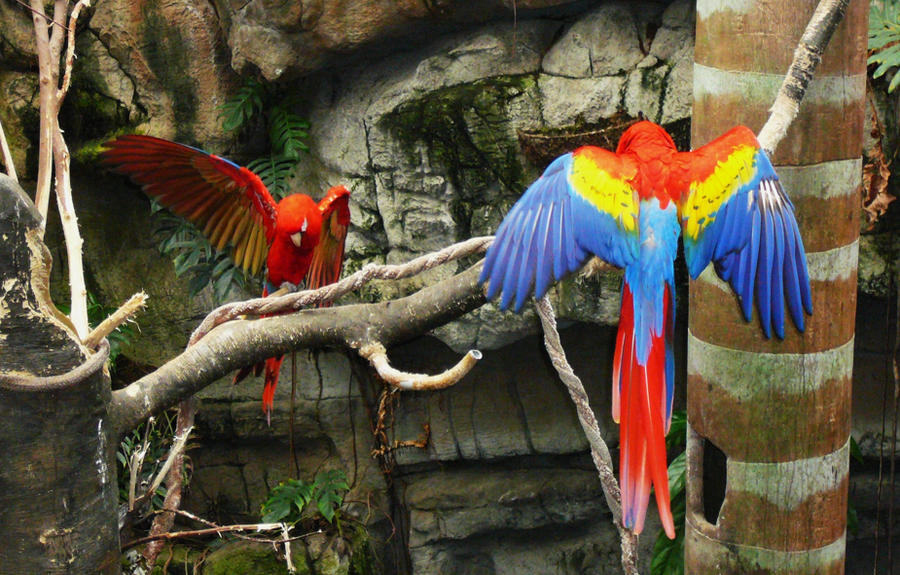Is Sea World a "for profit" establishment, or do they charge entrance fees and all the other costs to raise funds to support building new habitats, caring for their animals and covering the high costs associated with hiring the best zoologists, zoo keepers, veterinarians, maintenance staff, food, medicine and supplies that they can find. I, personally, have never been to Sea World ... too far away. I have been to many zoos in the midwest (my favorites are the Brookfield Zoo in Chicago and the Indianapolis Zoo) as well as the Shedd Aquarium in Chicago. They all appeared to concentrate on a quality life for thier animals, enlarging and updating habitats, encouraging interaction with the public (especially the youth) and openly promoting responsible stewardship of our planet.
If it weren't for the likes of places like Sea World, and the world's best zoos, the advancements in wildlife protection, the advancement in habitat creation and the advancements in veterinary medicine for wild animals would still be in the 1920s, housing their critters in tiny cages, tanks and pens
From my earliest years, visiting the elephants at the circus, to going to zoos and sitting in the forest on the opening day of hunting season, I have always been in love with animals. I grew up watching "Wild Kingdom" with Marlin Perkins and Jim (whatever his last name is). But Wild Kingdom never really got it done for me ... it was those all too rare encounters at the circus, the carnivals, zoos, etc. that gave me the burning desire to engage in biology and zoology. (Resulting in training in horseshoing, a degrees in biology and Animal Science.
When my children were still at home we always took vacations to zoos, parks, fairs and exhibits. We went to farms and milked cows. We went to horse shows. Now as grand parents, we look forward to taking our grand children to experience animals ... where ever possible.
Over the 56 years of my life, the industry of presenting the worlds animals to the public has had many great advances. With any luck, I will be able to share to wonder of the "wild" in the eyes of my great grand children.
AND YES, I will continue to support the scientific and physical needs of our local zoos as well as the common sense concerns for improvements WITHOUT alowing myself to get caught up in the emotional hysteria of far left fear-mongering groups producing panicky, "save the world from chicken abuse" movies and videos.
FYI: I eat MEAT, I love SUSHI, BACON is my friend, my belt, my boots and my motorcycle vest and coat are all made out of LEATHER! AND, I LOVE MY PETS LIKE THEY WERE MY FAVORITE KIDS! LOL
AND, for fear of inciting a Cyber-riot, I will move on to another thread.
B-Bye!
After-Note: The following was copied from the Wikipedia page for Sea World:
Alleged drive hunt captures[edit source | editbeta]
In response to criticism leveled at SeaWorld and other marine parks by the award-winning documentary film
The Cove which accuses them of obtaining dolphins obtained in
drive hunts, SeaWorld spokesperson Fred Jacobs stated that, "We think we're being unfairly criticized for something we're opposed to."
[29] He adds that, "SeaWorld opposes the dolphin hunts documented in
The Cove. We do not purchase any animals from these hunts. More than 80 percent of the marine mammals in our care were born in our parks. We haven't collected a dolphin from the wild in decades."
[30] Since 1993 there have been no permits issued to facilities in the United States to import dolphins acquired through drive hunt methods.
[31] Marilee Menard, the executive director of the Alliance of Marine Mammal Parks and Aquariums, has also stated that she believes that
The Cove filmmakers are "misrepresenting that the majority of zoos and aquariums with dolphins around the world are taking these animals."
[29]






